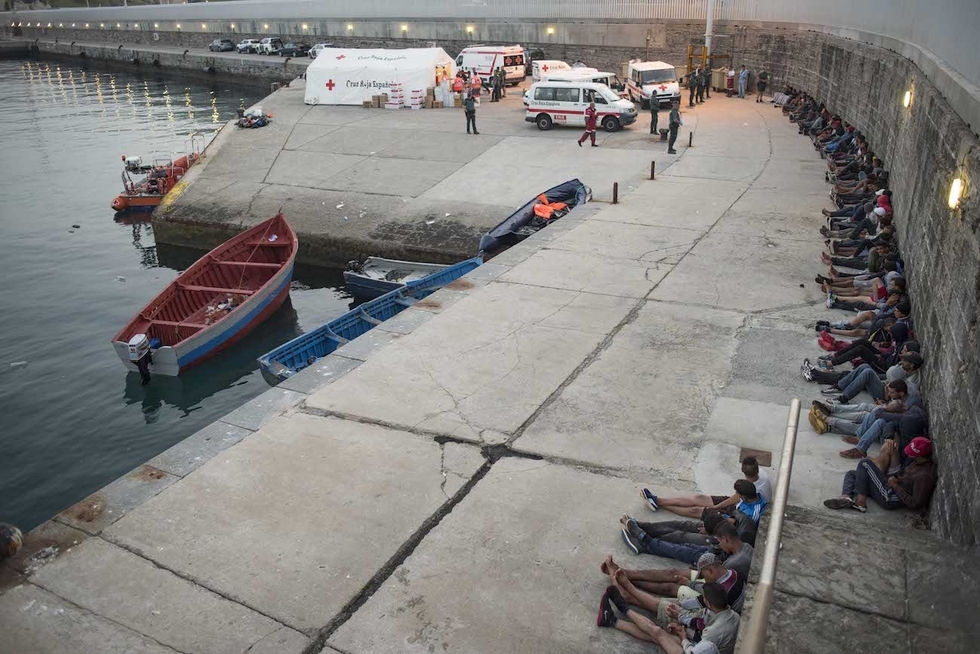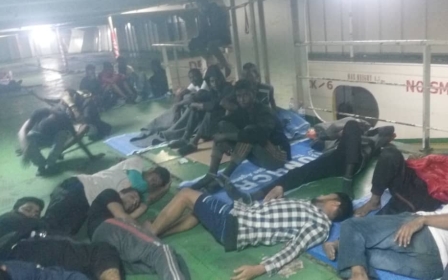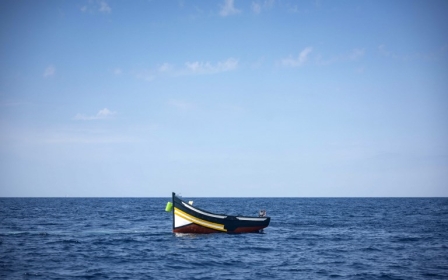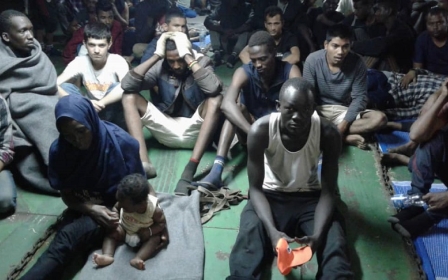15 migrants found dead on stranded vessel off Morocco's coast

Morocco's navy found the bodies of 15 migrants from Sub-Saharan Africa on board a boat stranded at sea for days, a military source told AFP news agency.
Coastguards recovered "15 lifeless corpses" from the vessel in the Mediterranean Sea on Saturday and rescued 53 survivors on board, including eight women.
The vessel was left drifting for four days following engine failure on its way to Spain, the source told AFP.
The survivors were taken to the port of Nador, a coastal city in Morocco's northeastern Rif region, the news agency reported.
While traffic on the main sea route from Libya to Italy has fallen sharply over the past year, travel has increased across the Western Mediterranean to Spain.
On Friday, the International Organization for Migration (IOM) said about 51,000 migrants have arrived in Spain by sea this year.
More than 120 migrants, from North Africa and Sub-Saharan Africa, have arrived in Spain each day during November, following a record month in October with over 350 arrivals per day, the IOM said.
More than 630 people have died or gone missing along the Spain-bound route, the IOM said, nearly three times more than in all of 2017.
"This is usually a time of slowing down on these routes, that is not happening in Spain," IOM spokesman Joel Millman told a news briefing on Friday, as reported by Reuters.
In total, more than 104,500 people have arrived by sea in Europe so far this year, while 2,075 have died on their journeys, according to the IOM's latest figures.
Middle East Eye propose une couverture et une analyse indépendantes et incomparables du Moyen-Orient, de l’Afrique du Nord et d’autres régions du monde. Pour en savoir plus sur la reprise de ce contenu et les frais qui s’appliquent, veuillez remplir ce formulaire [en anglais]. Pour en savoir plus sur MEE, cliquez ici [en anglais].




